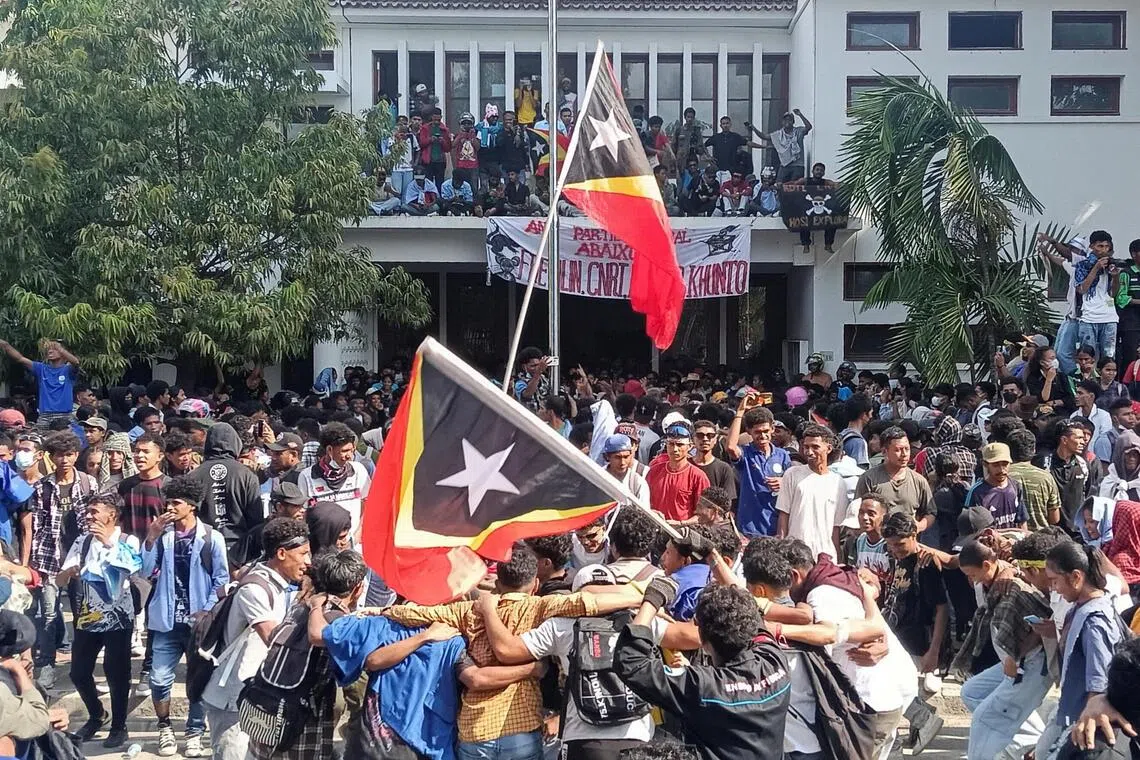Timor-Leste axes plan to buy SUVs for MPs
Sign up now: Get insights on Asia's fast-moving developments

Student-led demonstrations against the multi-million-dollar purchase drew thousands this week in Dili, with demonstrators and police clashing two days in a row.
PHOTO: REUTERS
DILI, Timor-Leste – Timor-Leste’s Parliament has bowed to public pressure and dropped a plan to buy sport utility vehicles (SUVs) for lawmakers in one of South-east Asia’s poorest nations, but sceptical protesters returned to the streets on Sept 17.
Student-led demonstrations against the multi-million-dollar purchase
Unappeased by the last-minute reversal, around 2,000 demonstrators gathered near the Parliament building in Dili for a third straight day on Sept 17, according to an AFP journalist.
“Rumours are that the cars are already on the way,” said protester Trinito Gaio, 42.
“So this is why all of these students and myself are here today – to make sure my tax money is not going in the wrong direction.”
The controversy stemmed from a US$4.2 million (S$5.4 million) budget item, approved in 2024, to purchase Toyota Prado SUVs for each of the country’s 65 MPs.
The tender was due to be completed in September, according to a Parliament document.
The plan triggered widespread anger in a nation where over 40 per cent of the population lives in poverty, according to the World Bank.
Facing mounting protests, Parliament made a U-turn on Sept 16, cancelling the “new vehicle procurement process listed in the 2025 budget”.
A statement added that Parliament’s general secretariat must now adopt measures “aimed at maintenance and efficient use” of vehicles already in the MPs’ use.
The protests on Sept 15 and 16 saw demonstrators hurl rocks at police, triggering a tear gas response.
President Jose Ramos-Horta told reporters on Sept 16 that there would be “no tolerance” for violence during the demonstrations.
The unrest occurred while Prime Minister Xanana Gusmao was travelling to London for meetings on land and maritime borders. He is expected to return on Sept 22.
Timor-Leste, which gained independence from Indonesia in 2002 after more than two decades of occupation, continues to grapple with high inequality, malnutrition and unemployment.
Its economy remains heavily reliant on its oil reserves.
Deadly riots erupted in Indonesia in August after a video of a police vehicle running over a motorcyclist ignited public anger over lawmakers’ lavish perks, low wages and unemployment. AFP


